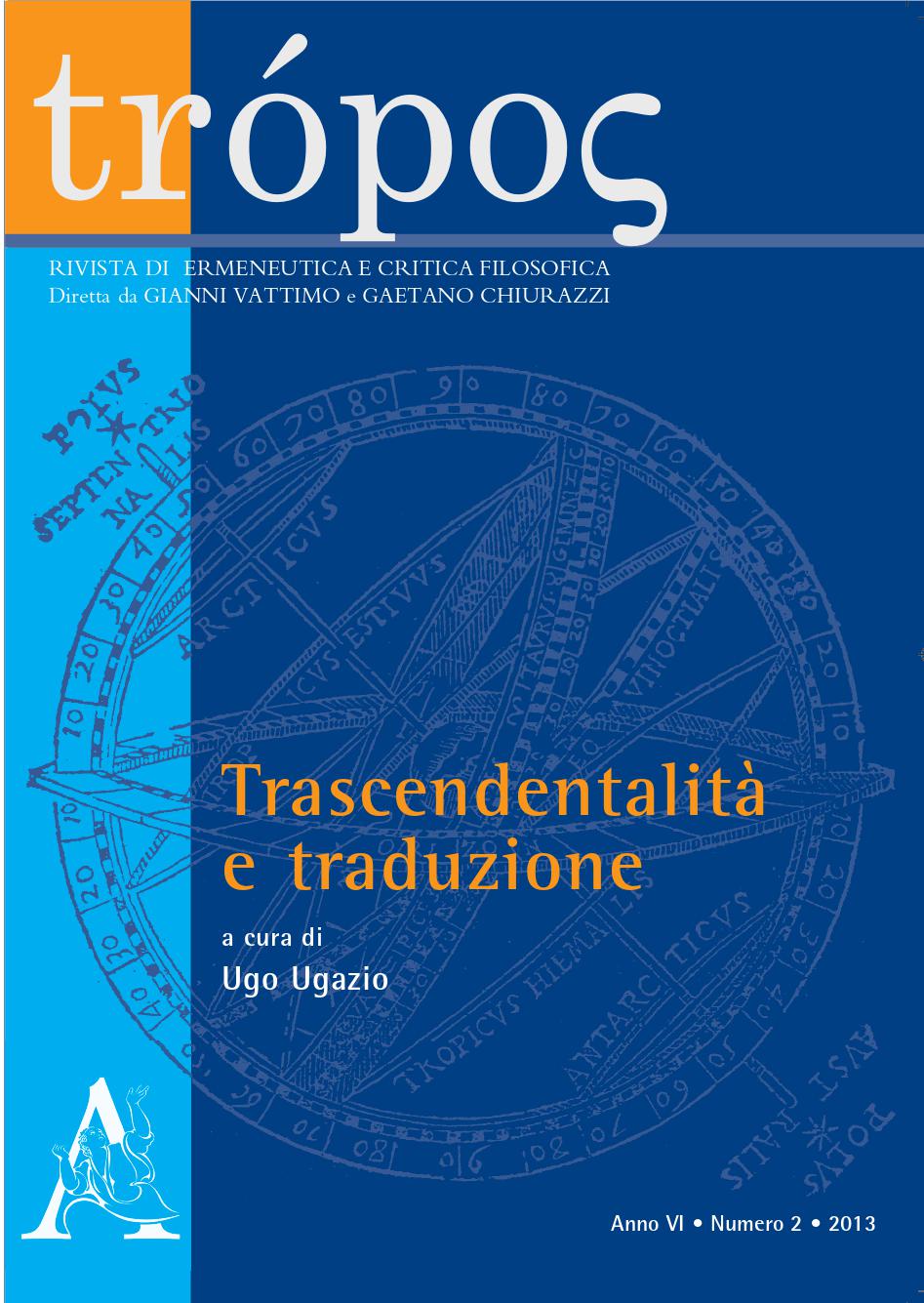La visione morale del mondo
Sulla critica di Hegel alla ragion pratica della filosofia trascendentale
DOI:
https://doi.org/10.13135/2036-542X/7777Keywords:
Kant, Hegel, Transcendentalism, Formalism, Practical PhilosophyAbstract
Hegel can be read as a thinker that whilst being placed within the tradition of transcendental philosophy at the same time attempted to go beyond that tradition. Hegel strongly accentuates the distributive aspect of the formalism of intrinsic duties as much as the aspect of deficit. According to Hegel, Kant already had in mind, in his idea of will as end, such a concrete universal, the objective judgement, in which the end represents more than a judgement, that is to say it represents the logical form of the syllogism. The transition from morality to ethicity entails the elimination of the contradiction in the moral sphere, the overcoming of the antinomy of duty which constantly sustains itself. The contradiction is not resolved in the progression towards infinity, but on the contrary, is proposed and defended as unresolved and irresolvable. Hegel sees the nature of speculative thought in the capacity to think the ideality of the two conflicting parts, or rather, to consider them from the outset as moments of the concept of moral action, in thinking through the transition from morality to ethical action.


